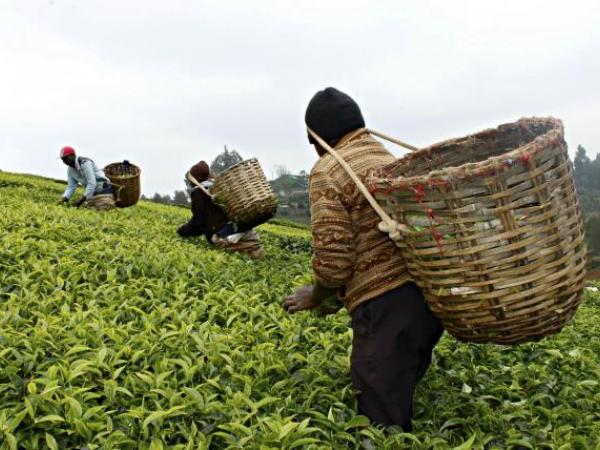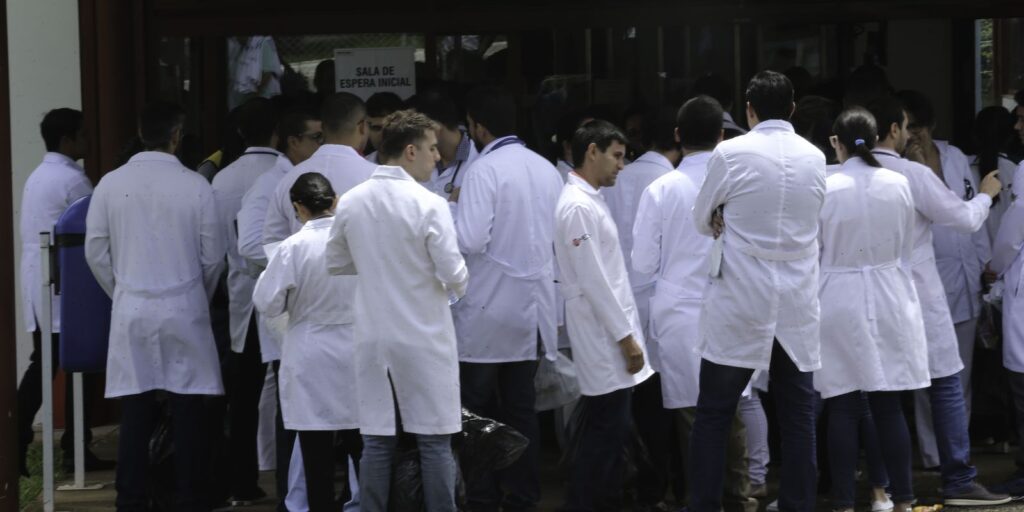The dynamics of the different economic sectors in February were favorable for most categories, as evidenced by Dane in its latest publication of the Economy Monitoring Indicator (ISE), which for the second month of 2022 stood at a level of 110.37 points in its original series, and showed an annual growth of 8.12% compared to February 2021.
(Ingenuity and sustainability, what makes Colombian coffee special).
And although most of the lines of the economy continue advancing on a path of recovery and stabilization, the primary activities, in which the agricultural sector, and the exploitation of mines and quarriesis the only group that is still below its pre-pandemic performance.
Together they contribute 12.8% of the national economy, and in February they grew 0.9%. Agriculture registered a rise of 1.2%, while in mines and quarries it was 0.3%.
(Economic activity in Colombia grew 8.1% in February).
According to the director of Dane, Juan Daniel Oviedo, the added value generated by primary activities only reaches 92.1% of the level of dynamism they had in February 2020a period that is taken as a pre-pandemic comparison, which represents a gap of 7.9 percentage points.
“We are continuously around 90% or 91% of the pre-pandemic benchmarks for primary activities, especially associated with the behavior of the exploitation of mines and quarries, and particularly for the extraction of gas and oil, given that the latter in particular is still well below its pre-pandemic levels,” explained Oviedo.
MANUFACTURING AND WORKS
Another group that was slow to take off, but is already at a level 6.1% higher than the figures prior to the pandemic, is manufacturing and works. Are improved their dynamics above comparison levels at the start of 2020 in mid-August of last year, and have continued to rise.
“We are seeing in February that in the manufacturing sector there is a growth of 9.2% and for construction activities of 12.4%. The weights of these two growths explain the annual evolution of 10.1%, slightly stabilized since the months of August 2021 around a two-digit average of around 11%.
Services, featured
The third group, which corresponds to 69.8% of the economic dynamics, are services, or tertiary activities. Comparing with the pre-pandemic added value, this group is It is 7.6% above the rate of activity that it had before the arrival of covid.
Within this, the supply of electricity, gas; water distribution registers a biennial variation of 2.0%; trade, transportation, accommodation and food services 4.1%; the branch of information and communications of 22.1%; financial and insurance activities 8.4%; real estate activities 4.3%; The category of professional, scientific and technical activities is 8.5% above its February 2020 data, while the variation in public administration, education and health; artistic activities and entertainment is 15.1%.
“In biennial terms, for all activities, both secondary and tertiary, we see positive growth,” said the director of Dane, who highlighted the biennial growth of information and communications.
Oviedo clarified that this is the last report that is compared with a pre-pandemic benchmark, because the biennial comparison is already in the middle of the emergency figures and that “as of March, to the extent that the level of economic activity It has already been above pre-pandemic levels for several months, we will be talking about the traditional annual and inter-monthly dynamics.”
Sergio Olarte, chief economist at Scotiabank Colpatria, indicated that the February results of the ISE show that “construction is beginning to update and improve faster and this shows that investment in civil works is going to help growth this year”, and that the ISE also shows us that “mining and oil still have a long way to go to reach pre-pandemic levels and they are very far from this level, especially in terms of oil production”.
Olarte highlighted that the rest of the economy, especially manufacturing and commerce, are showing a faster recovery.
LAURA LUCIA BECERRA ELEJALDE
BRIEFCASE


















